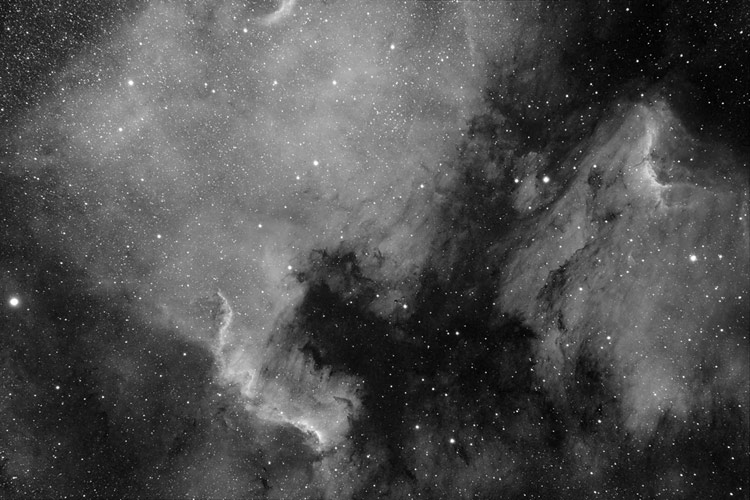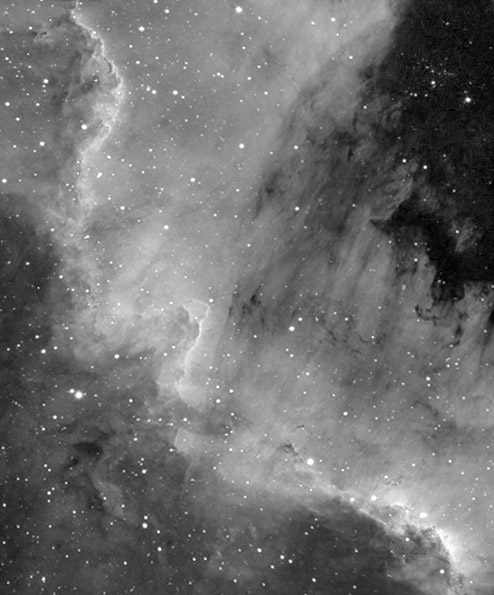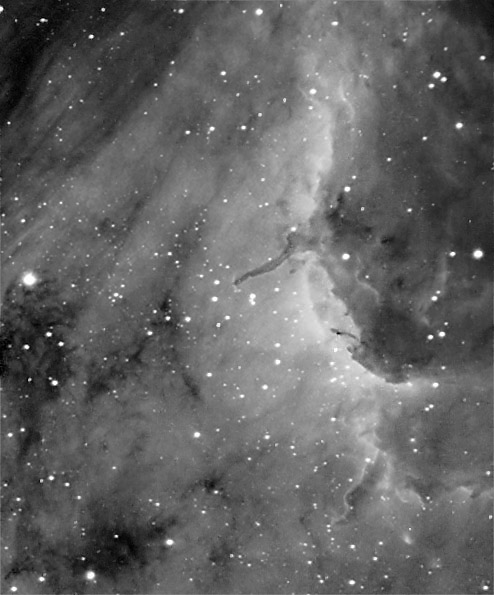North America and Pelican Nebula

Clic here for 50% size 2004x1336 (458 kB)
About this Image
|
|
The North American Nebula NGC7000 (left) and the Pelican Nebula IC5070 (right) are 2 famous emission nebulae in central Cygnus.
The distance to the North American Nebula is estimated at 1600 light years.
Ionizised bright Hydrogen gas and dark dust lanes are interfering in strange patterns.
Special attention should be given to the brightest parts of both nebulae (the famous cygnus wall near the gulf of Mexico and the neck of the Pelican ). The light from young energetic stars is slowly transforming cold gas to hot gas,
with the advancing boundary between the two known as an ionization front. Particularly dense and intricate filaments of cold gas are visible along the front.
North is up.
Below a 100% closeup on the Cygnus wall and on the Pelican's elephant trunk.
|


Technical Details
|
| Optics |
105mm TMB refractor with flattener at f/6.5
|
|
Mount |
MK-100 GEM |
|
Camera |
SBIG STL-11000M at -23C, internal filter wheel |
|
Filters |
Astronomik H-alpha (15 nm) |
|
Date |
21 Apr 2004. |
|
Location |
Wildon/Austria |
|
Sky Conditions |
mag 5.5, high transparency, temperature 15-10 C, before dawn |
|
Exposure |
Ha = 60 minutes (10-minute sub-exposures), all 1x1. |
|
Processing |
Image calibration, aligning, weighted median stacking, DDP in ImagesPlus; Noise reduction by Neatimage; curves in Photoshop; size 19/30/50%; |


